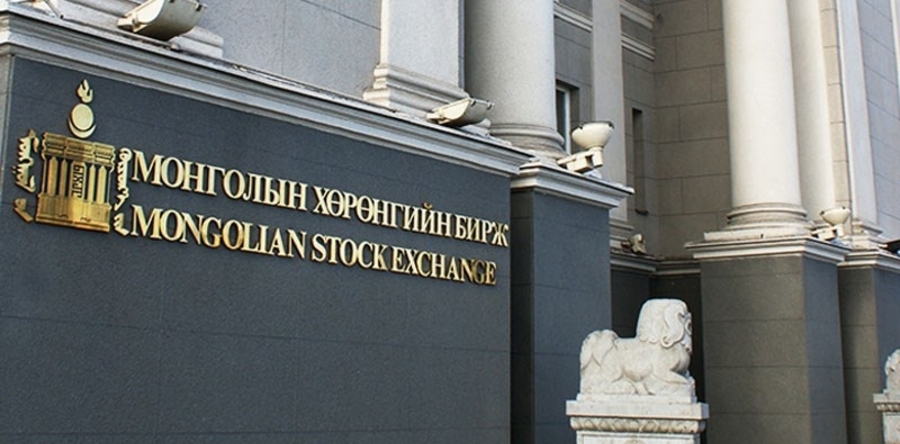Mongolia has long been known for its vast natural resources, nomadic heritage, and unique position between two global powers—China and Russia. But in recent years, the country has also attracted growing attention from international businesses and investors. From mining to renewable energy, infrastructure to digital services, Mongolia’s economy is gradually diversifying.
Yet for foreign investors, entering a new and developing market is never simple. Beyond regulations and business laws, the greatest challenge lies in people—hiring the right local talent, building leadership teams, and aligning with Mongolian workplace culture. This is where recruitment firms play a vital role, acting as a bridge between global investors and Mongolia’s local workforce.
In this blog, we’ll explore in depth how recruitment firms in Mongolia help foreign investors reduce risks, accelerate entry, and build competitive teams, while also highlighting the unique advantages of consultative and specialized recruitment practices in the country.
1. The Unique Challenges Foreign Investors Face in Mongolia
Before diving into the role of recruitment firms, it’s worth understanding why Mongolia presents both great opportunities and distinct challenges for international investors.
1.1 Talent Availability vs. Specialized Needs
Mongolia has a young and educated population, but many industries—such as advanced mining technologies, IT development, renewable energy, and finance—still face skill gaps.
Foreign investors often need specialized expertise that is scarce locally, requiring careful recruitment strategies to balance local hires with international placements.
1.2 Cultural and Workplace Differences
Mongolians value relationships, loyalty, and trust-building.
Global companies accustomed to highly structured systems may misinterpret local expectations around hierarchy, decision-making, and negotiation.
Misalignments in work culture can lead to high turnover if not addressed early.
1.3 Language and Communication Barriers
English proficiency is growing, especially among younger professionals, but in many industries Mongolian remains the dominant working language.
Foreign investors need bilingual executives who can bridge global strategy with local execution.
1.4 Complex Regulatory Environment
Employment laws, visa requirements, and labor protections are evolving.
Without local HR guidance, foreign investors risk compliance issues.
1.5 Competition for Top Talent
As more international companies enter the market, demand for senior executives and technical specialists is rising.
Retaining top talent becomes critical, especially in high-growth industries.
2. How Recruitment Firms Act as Market Entry Partners
Recruitment firms in Mongolia do much more than fill job vacancies. For foreign investors, they function as strategic partners who provide insights, mitigate risks, and lay the foundation for long-term success.
2.1 Market Intelligence and Workforce Insights
Recruitment firms analyze salary benchmarks, industry trends, and talent availability.
They help investors understand:
What compensation packages are competitive in Mongolia.
Which industries are growing and attracting talent away.
How local expectations differ from global norms.
This data ensures investors don’t overestimate or underestimate the market.
2.2 Tailored Hiring Strategies
Every investor’s needs are different. Some require C-level executives to launch a subsidiary; others need technical engineers or sales teams.
Recruitment firms design strategies that balance local hires with possible expatriate placements, ensuring smooth knowledge transfer.
2.3 Cultural Alignment and Employer Branding
Local firms advise foreign investors on how to position themselves as attractive employers in Mongolia.
They help craft job descriptions, onboarding programs, and communication styles that resonate with local professionals.
Employer branding is especially important for companies new to the market, where reputation and trust take time to build.
2.4 Executive Search and Leadership Placement
High-level executives are key to market entry.
Recruitment firms specialize in headhunting Mongolian executives with proven leadership experience, bilingual ability, and industry knowledge.
These executives often act as “cultural translators” who align global goals with local realities.
2.5 Compliance and HR Advisory
Firms provide guidance on labor laws, contracts, and employee benefits.
They also help structure HR policies that meet both Mongolian legal standards and international best practices.
3. Key Advantages of Using Recruitment Firms in Mongolia
3.1 Reduced Hiring Risk
Hiring mistakes are costly in any country, but especially so for foreign investors who may not fully understand the local landscape. Recruitment firms:
Vet candidates thoroughly.
Use reference checks and industry networks to confirm reputation.
Match not just skills but also values and cultural fit.
3.2 Faster Market Entry
Instead of spending months navigating unfamiliar hiring channels, investors can rely on established recruitment networks.
This speeds up the setup of local offices, project launches, or joint ventures.
3.3 Access to Hidden Talent
Many of Mongolia’s top professionals are not actively job hunting.
Recruitment firms leverage connections to approach passive candidates who are otherwise inaccessible.
3.4 Strategic Workforce Planning
Firms help investors forecast future talent needs as their Mongolian operations grow.
This proactive approach prevents future shortages and ensures sustainable scaling.
3.5 Long-Term Partnerships
Many recruitment firms in Mongolia operate on a consultative model, staying engaged beyond initial hires.
They support retention, performance management, and succession planning.
4. Case Scenarios: How Recruitment Firms Add Value
Let’s look at a few examples of how recruitment firms play a role for foreign investors:
Case 1: Mining Multinational Expanding Operations
Challenge: Needed experienced project managers familiar with both global mining standards and Mongolian regulatory frameworks.
Solution: Recruitment firm identified bilingual executives who had worked abroad and returned to Mongolia, combining global expertise with local knowledge.
Case 2: Renewable Energy Start-Up
Challenge: Small foreign investor lacked employer brand awareness in Mongolia.
Solution: Recruitment partner helped design competitive compensation packages, promoted the company’s sustainability mission, and attracted engineers who valued innovation.
Case 3: IT Outsourcing Firm
Challenge: High demand for software developers, but investor struggled with high turnover.
Solution: Recruitment firm advised on retention strategies, including clear career paths and local cultural perks, improving employee loyalty.
5. What Foreign Investors Should Look for in a Recruitment Partner
Not all recruitment firms operate the same way. Foreign investors should evaluate partners based on:
Local Expertise: Deep understanding of Mongolian industries and talent pool.
Consultative Approach: Goes beyond filling roles, provides advisory support.
Network Strength: Access to executives, specialists, and passive candidates.
Reputation and Ethics: Transparency and compliance with labor laws.
Track Record: Proven success with international clients.
6. The Future of Recruitment and Investment in Mongolia
As Mongolia’s economy evolves, recruitment will play an even bigger role in shaping sustainable business growth. Some key trends include:
Digital Transformation: More foreign firms will seek IT and digital marketing professionals.
Green Economy: Renewable energy and sustainable projects will create new roles.
Leadership Development: Demand for bilingual executives will grow as companies expand.
Cross-Border Collaboration: Recruitment firms may facilitate knowledge-sharing between Mongolian talent and global teams.
For foreign investors, Mongolia offers a unique blend of challenges and opportunities. While the market holds immense potential, success depends on understanding people, culture, and talent dynamics. Recruitment firms in Mongolia are not just service providers—they are strategic partners who guide investors through every stage of market entry. From executive search to cultural advisory, from compliance to long-term workforce planning, they help investors stay competitive, compliant, and connected in one of Asia’s most promising emerging markets.


